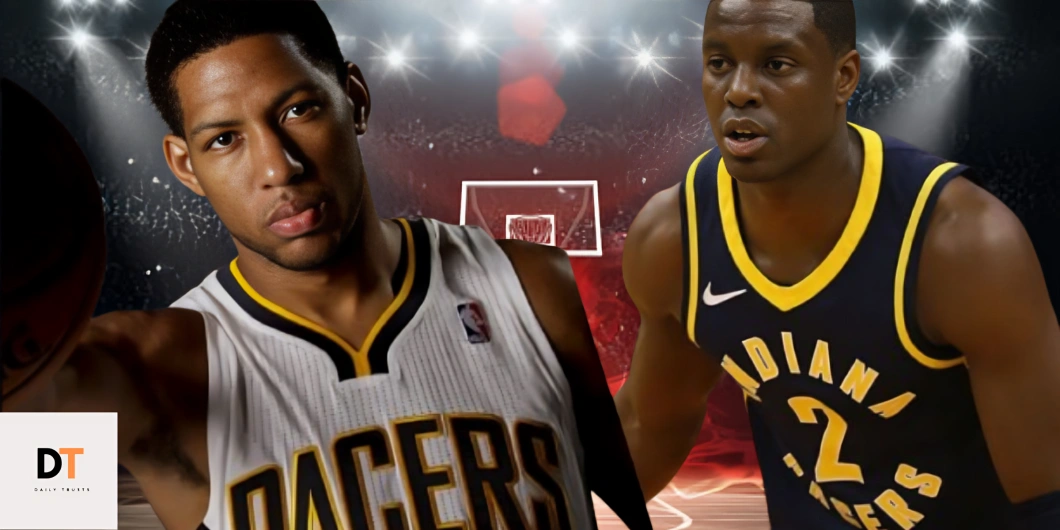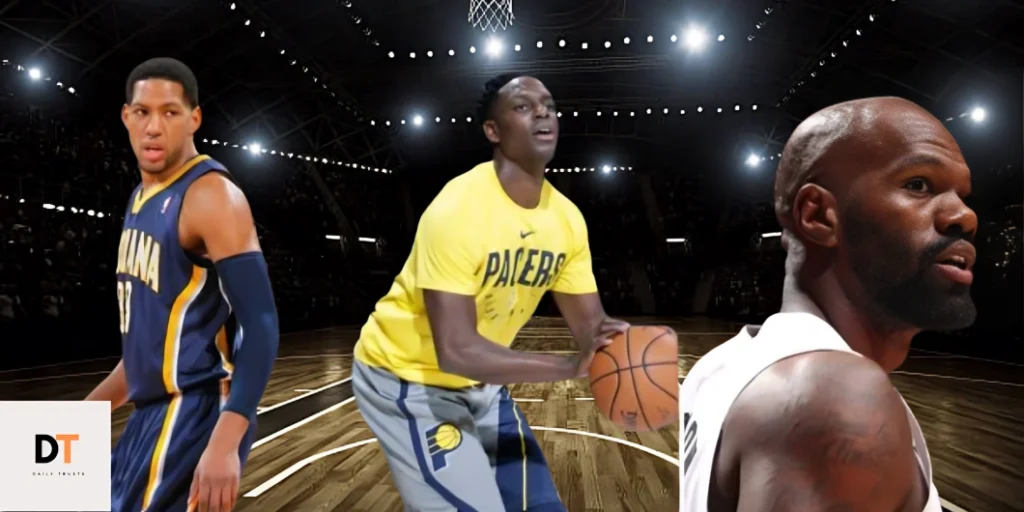How Many Ex-NBA Players Are Jehovah’s Witnesses?
NBA players who are Jehovah’s Witnesses
NBA Jehovah’s Witnesses have handled their commitment to their faith with jobs, much like many other believers. Some of their fans have even decided to convert to the faith as a result of their actions.
Who are the Jehovah’s Witnesses?
The Christian group known as Jehovah’s Witnesses (JW) follows the teachings of Jesus and the deeds of his apostles. The church acknowledges the Bible as God’s inspired word to humanity, according to the JW website.
Notable Ex-NBA Players Who Are Jehovah’s Witnesses
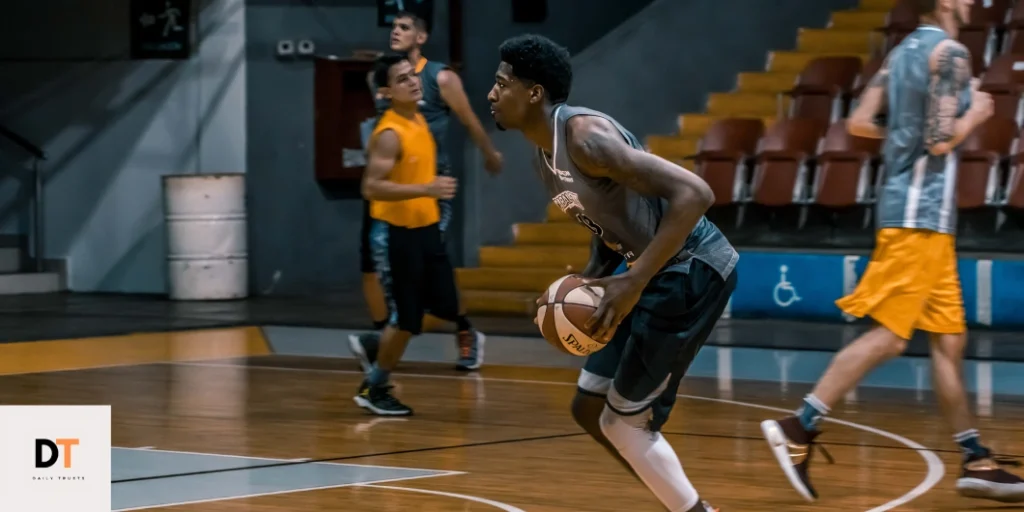
1. Darren Collison
Darren Collison is perhaps the most prominent ex-NBA player who is a Jehovah’s Witness. Collison surprised the basketball world in 2019 when he announced his retirement from the NBA at the age of 31 to focus on his faith and humanitarian work.
Career Highlights:
- Played for teams like the Indiana Pacers, Sacramento Kings, and Dallas Mavericks.
- Averaged 12.5 points and 5 assists per game over a decade-long career.
Faith Journey:
Collison described his decision to retire as one motivated by his desire to prioritize his faith over the demands of an NBA career. He remains active in his religious community and is involved in various charitable efforts.
2. Dewayne Dedmon
Dewayne Dedmon, a former NBA center, was raised in a household where his mother was a devout Jehovah’s Witness. Although Dedmon did not fully practice the faith during his NBA career, his upbringing was deeply influenced by its teachings.
Career Highlights:
- Played for teams like the Miami Heat, San Antonio Spurs, and Atlanta Hawks.
- Known for his rebounding and defensive skills.
Connection to Faith:
Dedmon’s early life as a Jehovah’s Witness shaped his values and perspective, though his professional basketball career led him to diverge from strict adherence to the religion.
3. Michael Adams
Michael Adams, a former NBA guard known for his three-point shooting, is another player associated with Jehovah’s Witnesses.
Career Highlights:
- Played for teams like the Denver Nuggets and Washington Bullets in the 1980s and 1990s.
- Averaged 14.7 points per game during his career.
Faith Connection:
Adams has spoken about his spiritual beliefs and the role they played in helping him navigate the challenges of an NBA career.
The Journey Beyond Basketball
An important turning point in the lives of former NBA players is their choice to become Jehovah’s Witnesses. It signifies a departure from professional sports and a move toward a more spiritually orientated course. Even though their basketball careers are over, they are still searching for spiritual fulfillment, personal development, and a closer relationship with their faith.
Why the Exact Number Is Hard to Determine
The number of ex-NBA players who are Jehovah’s Witnesses is difficult to pinpoint for several reasons:
- Privacy: Many players may choose not to publicly disclose their religious beliefs.
- Evolving Faith: Some players may have been raised as Jehovah’s Witnesses but later distanced themselves from the faith.
- No Central Registry: There is no official record of professional athletes who identify with the religion.
The Broader Impact of Jehovah’s Witnesses in Sports
The presence of Jehovah’s Witnesses in professional sports extends beyond basketball. Athletes in various disciplines have embraced the faith, demonstrating that spirituality can coexist with high-level competition.
Other Notable Jehovah’s Witness Athletes
- Serena and Venus Williams (Tennis): The Williams sisters were raised as Jehovah’s Witnesses and credit their faith for their discipline and success.
- Prince Naseem Hamed (Boxing): A devout follower, Hamed practiced his faith throughout his boxing career.
- Dave Pear (NFL): A former football player who became a Jehovah’s Witness after retiring from the NFL.
These athletes highlight how religious beliefs can shape personal and professional decisions, even in the demanding world of sports.
The Unique Intersection of Faith and Professional Sports
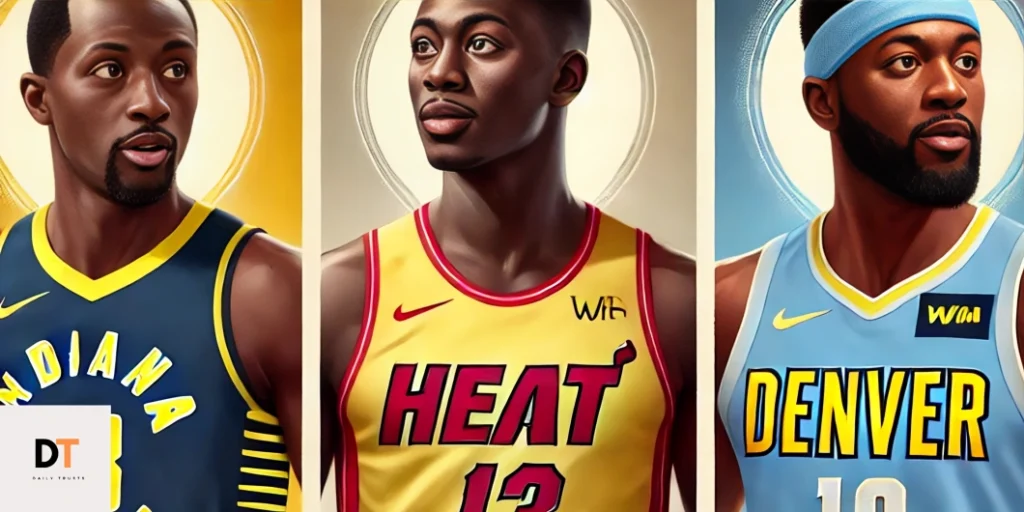
Jehovah’s Witnesses follow strict guidelines that often set them apart from mainstream practices. For example, they abstain from celebrating birthdays and holidays, refuse blood transfusions, and prioritize evangelism. These principles can present challenges for individuals in high-profile careers like professional sports, where the demands and culture may conflict with their beliefs.
However, players like Dedmon, Granger, and Collison have demonstrated that it is possible to stay true to their faith while achieving success in the NBA. Their stories highlight the broader diversity within the league and underscore the importance of respecting individual beliefs.
Are there more NBA players to be Jehovah’s Witnesses?
A world of lesser-known terrain is revealed when investigating Jehovah’s Witnesses with NBA. Given that the NBA has been around for more than 75 years, many players still follow the religion. They have, however, differed in how much they have openly shared their views, with some choosing to keep their identities private.
1. A.C Green
Looking back to the 1980s, A. C. Green emerged as a devoted member of the Jehovah’s Witness faith. Around the time of his first championship in 1987, Green aligned himself with the worldwide Christian movement. Since then, he has been a regular speaker at religious gatherings and youth events.
2. Sam Perkins
Time travel to the 1990s, a decade later. Sam Perkins, the center for the Seattle SuperSonics, caused a sensation when he stood out of line during the playing of the national anthem. He attributed this action to his dedication to the Jehovah’s Witnesses’ religion.
3. Detlef Schrempf
FIBA Hall of Famer Detlef Schrempf mirrored Perkins’ position. It’s interesting to note that Schrempf became a Jehovah’s Witness in the 1990s and has been a preacher since.
There are more than ten NBA players who identify as Jehovah’s Witnesses. Among others on the list are Thurl Bailey, Mark Jackson, Reggie Theus, and Michael Adams. It’s interesting to note that some players convert to Jehovah’s Witnesses after changing their religious beliefs several times in the past.
Positive Contributions
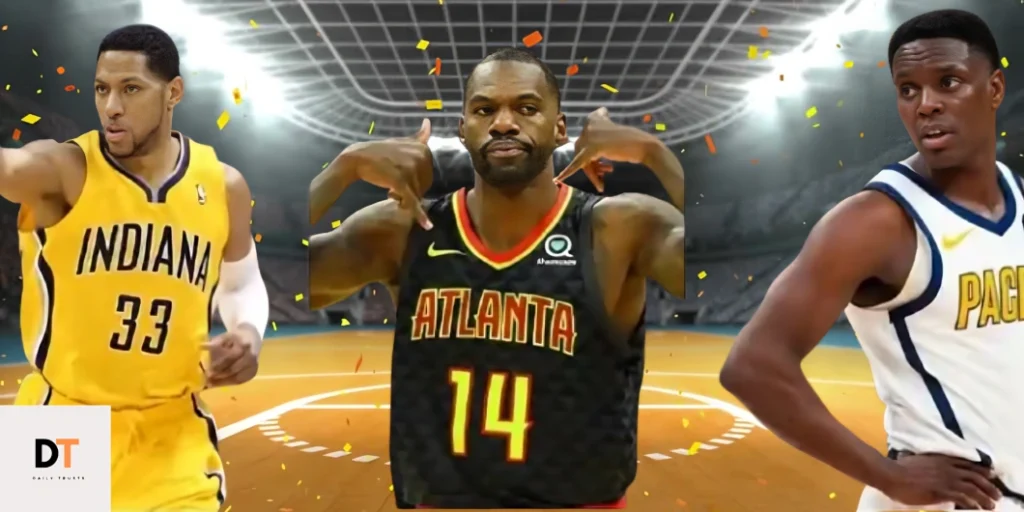
Beyond their basketball careers, former NBA players who convert to Jehovah’s Witnesses make a constructive contribution to society. They volunteer, actively participate in community service projects, and share their faith’s principles. They can use their NBA experiences as a platform to motivate others and raise awareness of significant social concerns.
Inspiring Future Generations
The confessions of former NBA players who are Jehovah’s Witnesses are compelling. They serve as an inspiration to people who want to get closer to their faith as well as to aspiring athletes. These athletes who have converted to Christianity show that there are multiple methods to define success.
Conclusion About Ex-NBA Players Who Are Jehovah’s Witnesses
While the exact number of ex-NBA players who are Jehovah’s Witnesses remains unknown, the impact of the faith on the lives and careers of players like Darren Collison, Dewayne Dedmon, and Michael Adams is undeniable. Their stories shed light on the challenges and rewards of balancing a professional sports career with deeply held religious beliefs.
The presence of Jehovah’s Witnesses in the NBA serves as a reminder of the diversity within professional sports and the importance of staying true to one’s values. For fans, these players offer a unique perspective on how faith and sports can intersect, even at the highest levels.
FAQS About Ex-NBA Players Who Are Jehovah’s Witnesses
Q1: How many ex-NBA players are Jehovah’s Witnesses?
The exact number is unclear because not all players publicly disclose their religious affiliations. However, notable examples include Darren Collison, Dewayne Dedmon, and Michael Adams, who have either been raised as or are practicing Jehovah’s Witnesses.
Q2: Why did Darren Collison retire early from the NBA?
Darren Collison retired in 2019 at the age of 31 to focus on his faith as a Jehovah’s Witness. He expressed a desire to dedicate more time to evangelism, Bible study, and humanitarian efforts.
Q3: What challenges do Jehovah’s Witnesses face in professional sports?
Jehovah’s Witnesses face several challenges in the NBA, including:
- Balancing the rigorous travel and game schedule with religious commitments.
- Avoiding participation in nationalistic rituals like the national anthem.
- Upholding moral and ethical standards in an environment often associated with luxury and indulgence.
- Opting out of traditional celebrations like birthdays and holidays.
Q4: Are Jehovah’s Witnesses allowed to play professional sports?
Yes, Jehovah’s Witnesses are allowed to play professional sports. However, they must balance their careers with the religion’s requirements, such as attending congregation meetings, engaging in ministry, and adhering to strict moral guidelines.
Q5: Did Dewayne Dedmon practice Jehovah’s Witness beliefs during his career?
Dewayne Dedmon was raised by a devout Jehovah’s Witness mother, and her beliefs heavily influenced his upbringing. While he pursued basketball against her wishes and did not strictly practice the faith during his career, his values and discipline were shaped by his early exposure to the religion.
Q6: Are there other famous athletes who are Jehovah’s Witnesses?
Yes, Jehovah’s Witnesses have been represented in various sports. Notable examples include Serena Williams and Venus Williams in tennis, Prince Naseem Hamed in boxing, and Dave Pear in football.
Q7: Why don’t Jehovah’s Witnesses celebrate holidays or birthdays?
Jehovah’s Witnesses believe that many holidays and birthdays have pagan origins and do not align with Biblical teachings. They instead focus on celebrating their faith and living a life devoted to God.
